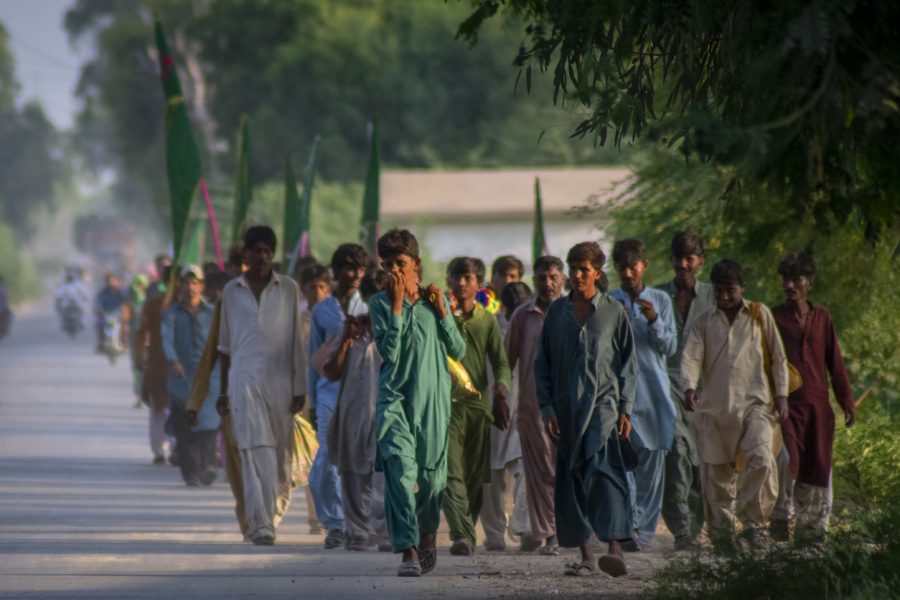
Why TMC, Bengal BJP are fretting over citizenship for minorities in Gujarat
Matuas — a migrant Hindu SC community in Bengal — have been largely backing the BJP since the party promised them citizenship under CAA; now, they are still treated as refugees while peers in poll-bound Gujarat are getting citizenship

The Union Home Ministry’s recent directive to the collectors of two Gujarat districts to grant citizenship to members of six minority communities from Pakistan, Afghanistan, and Bangladesh, has created ripples in the political circles in West Bengal. Both the Trinamool Congress (TMC) and the Bengal unit of the Bharatiya Janata Party (BJP) have got into a tizzy worrying how the development would play out among the state’s electorally influential Matuas, a Hindu community.
Opinions are divided in the TMC and the BJP over whether granting citizenship to members of the Hindu, Sikh, Parsi, Christian, Buddhist and Jain communities from the three countries would politically benefit them in Bengal.
In public, however, both the parties are trying to put up a brave face, interpreting the move to suit their own political narratives to woo the scheduled caste (SC) community of Matua that migrated over the years from erstwhile East Pakistan and today’s Bangladesh. Of the state’s estimated three crore Matua population, 1.5 crore are electorates. They can play a decisive role in the panchayat elections due early next year.
Also read: Centre to grant citizenship to minorities of Pak, Bdesh, Afghan under Citizenship Act, 1955
A large section of this migrant SC community had in the recent past backed the BJP since the party had promised them citizenship under the Citizenship Amendment Act (CAA), 2019.
Refugee status
Santosh Kirtaniya, a small-time trader in the Matua heartland of Bangaon in North 24 Parganas district, told The Federal, “Despite having all relevant identity documents like Aadhaar card, voter card etc, we often face problems in getting passports as during police verification our refugee status becomes an issue. We frequently face similar problems in getting government jobs, particularly in the security forces.”
Matuas like Kirtaniya feel that the CAA was the only solution to their problem, though the TMC and other non-BJP parties have been insisting that the 2019 legislation is nothing but a BJP ploy to create communal divide between Hindus and Muslims.
The BJP is now trying to win back the Matua support claiming that granting citizenship to the six communities in Mehsana and Anand districts of Gujarat is just the precursor to what is “sure to follow” in Bengal.
“The process of granting citizenship to migrants from the three countries has started in Gujarat. Very soon similar steps will be taken here too,” claimed BJP legislature party leader Suvendu Adhikari.
Catch in the notification
The Union Minister of State for Ports, Shipping and Waterways and Matua Mahasangha president Shantanu Thakur said the Gujarat directive was another “welcome step” by Home Minister Amit Shah towards “recognising rights of the refugees.”
Also read: Boulder smuggling to Bangladesh is adding to Bengal govt’s woes
The BJP’s official narrative, however, is finding a few takers within the party itself because there is a catch in the Home Ministry’s October 31 notification, empowering district collectors to grant citizenship to the migrants.
The process will grant citizenship to those migrants from the six communities who had legally entered India from the three countries with proper travel documents and had already applied for citizenship under Section 5 (by registration) and Section 6 (naturalisation) of the Citizenship Act, 1955.
Even in the past, the Home Ministry had empowered district administrations of several districts in Rajasthan, Maharashtra, Chhattisgarh, Punjab, Uttar Pradesh, Gujarat, Haryana and Punjab to grant citizenship under the provisions of the 1955 Act.
“Granting of citizenship under the 1955 law will not help Matuas in Bengal as most of them have migrated to India without valid papers after being persecuted,” pointed out BJP Haringhata legislator Asim Sarkar, dismissing the claims made by Adhikari and Thakur. “What was the point of making so much noise over the CAA 2019 if citizenship is to be granted under the old law,” pointed out Sarkar, who is also the convenor of the BJP’s refugee cell in Bengal.
Matuas feeling cheated
Sarkar was essentially articulating the views of several other state BJP leaders who feel that over-emphasising the Gujarat move might backfire for the party, as Matuas are already feeling cheated over the non-implementation of the CAA despite Amit Shah promising that the rules of the Act would be framed once the coronavirus pandemic is over.
Also read: Sangh blooms in Trinamool backyard, yet BJP left with little ground
The ruling TMC has been insisting that Matuas need not have to worry about their citizenship status.
“We are all citizens. The BJP is now doing this because of Gujarat elections. We will not allow such a process here,” said West Bengal chief minister and TMC supremo Mamata Banerjee. She was speaking to media persons before leaving for Chennai on Wednesday.
A senior TMC leader from the Matua community, however, warned that the party’s total opposition to any move towards granting citizenship to six communities from the three countries are alienating the Matuas.
“Mere assertions that all Matuas are Indian citizens because they are eligible to vote will not help. Because there are genuine issues over citizenship and that needs to be addressed,” he said. “If the Mome Ministry indeed tries to give citizenship under the 1955 law to refugees from Bengal and the TMC opposes it as our leader (Mamata Banerjee) has reiterated, it will not go down well with the Matuas,” the TMC leader claimed, preferring anonymity.

